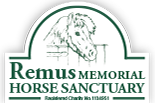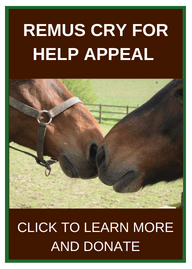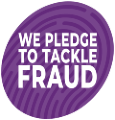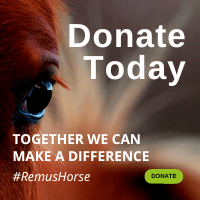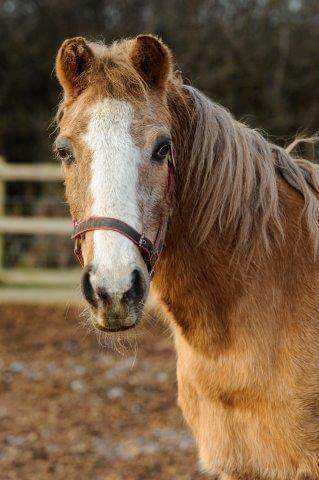
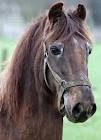
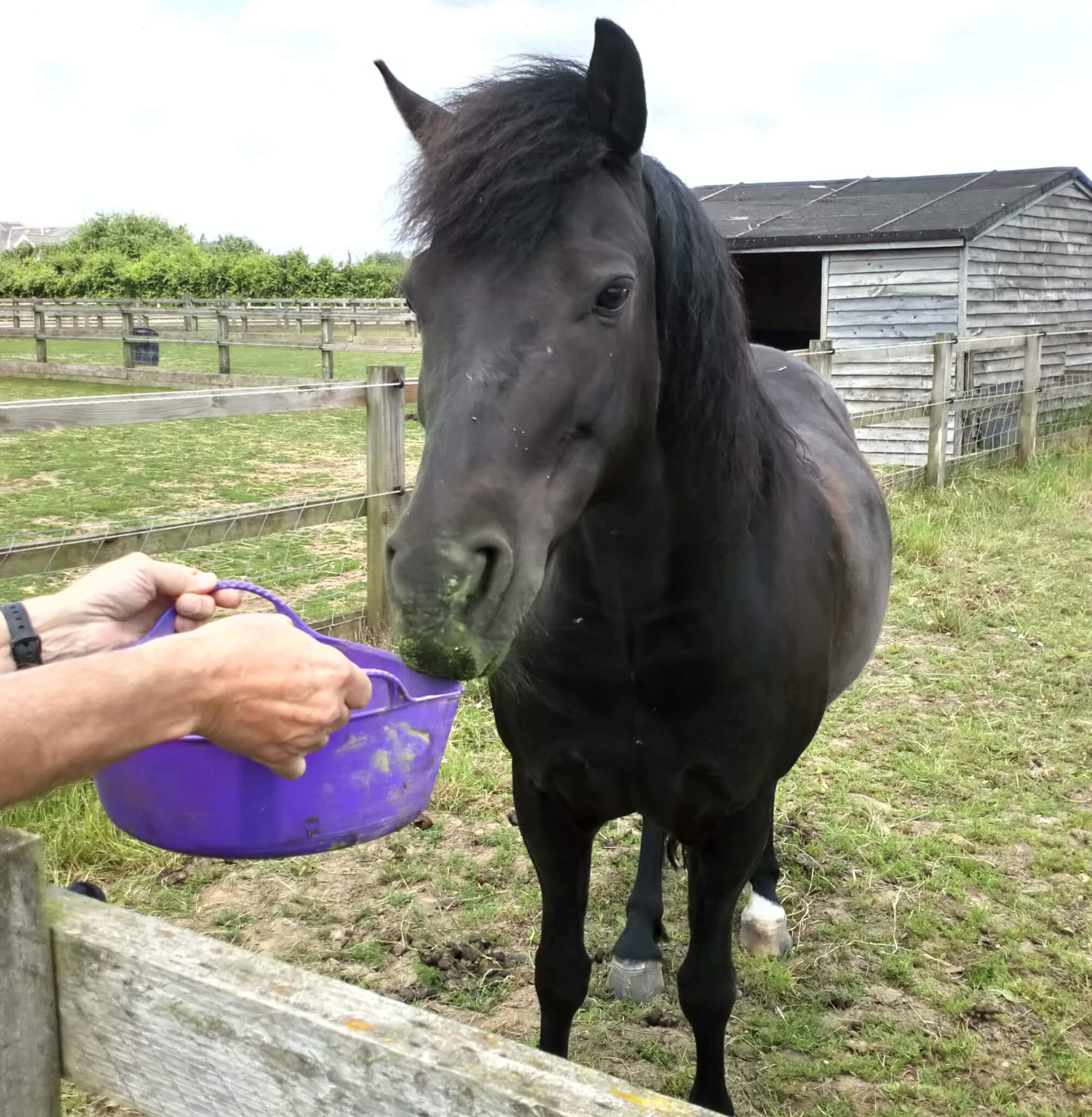
Ensuring the Best Care for Elderly Horses: Remus Horse Sanctuary Hosts Specialist Workshop
Remus Horse Sanctuary is inviting horse owners, carers, and equine enthusiasts to a dedicated Elderly Horse Workshop on Sunday 6 April 2025 at its premises near Ingatestone in Essex. This informative event will provide essential guidance on how to best support and care for ageing horses, offering expert advice on welfare, nutrition, and common health concerns.
As horses age, their care requirements change significantly, and understanding these needs is crucial for their long-term wellbeing. The workshop will be led by Remus staff member, Sue Moloney, covering key aspects of elderly horse care, including dentition, worming, colic, PPID/EMS and laminitis, arthritis, and enrichment. Additionally, Dengie Nutritionist Tracey Hammond MSc (Dist) will provide invaluable insights into feeding older horses, addressing age-related challenges such as poor teeth and weight loss that require careful dietary adjustments.
Attendees will gain practical knowledge and expert guidance to ensure their senior equines remain happy and healthy for as long as possible. This workshop is an excellent opportunity to learn from specialists, ask questions, and discover ways to enhance the quality of life for older horses.
Sue Burton, Founder of Remus Horse Sanctuary, said: “We are passionate about ensuring that elderly horses receive the care and attention they deserve. This workshop is designed to empower owners and carers with the knowledge they need to make informed decisions for their horses’ later years.”
To book your place, visit: www.remussanctuary.org/events/elderly-horse-workshop.
Advance booking is essential.
Exciting Spring Events at Remus Horse Sanctuary
As spring approaches, Remus Horse Sanctuary is gearing up for a vibrant calendar of events, offering something for everyone ahead of their much-anticipated Open Days, which begin on the first Sunday of the month from May through to October (weather permitting). With a diverse range of activities, supporters can learn, create, shop, and dine – all while raising essential funds for the Sanctuary.
March has some fantastic fundraising events to enjoy:
On Friday 8 March, put your knowledge to the test at our Quiz Evening at Stock Village Hall. Doors open at 7.30pm for an 8pm start – gather your team and join us for a fun and competitive evening.
On Saturday 16 March, there are two great opportunities to support the Sanctuary. First, our Online Auction via the Remus Facebook page starts at 11am, offering a fantastic selection of items to bid on. Later in the day, join us for the Curry Club at Nirvana Indian Restaurant in Ingatestone. For £22 per person, you’ll enjoy poppadoms, dips, a main course, side dish, and rice or bread. The event starts at 2pm for a 2.15pm sit-down, and advance booking is required. (These two events will also be repeated on Sunday 27 April.)
April kicks off with an Elderly Horse Workshop at the Sanctuary on Sunday 6 April, running from 11am to 3pm. This insightful session is designed to help horse owners understand how to support their equine companions in their later years. Attendees can enjoy tea, coffee, and homemade cakes while gaining valuable knowledge. The workshop costs £40 per person, and booking is essential by calling 01277 356191.
On Saturday 12 April, creative minds can take part in a Cake Decorating Workshop at the Billericay Reading Rooms from 11am to 2pm. Participants will learn to ice a cake with fondant and develop basic modelling techniques to craft their very own Easter Bunny cake! The workshop costs £45 per person, including sugarpaste, modelling paste, and a cake board. To secure your place, call the office on 01277 356191.
Look out for details on our website of our Fashion Show on Saturday 17 May and Enrichment Workshop on Sunday 25 May.
Sue Burton, Founder of Remus Horse Sanctuary, said: “Spring is an exciting time for us as we prepare for our Open Days, and we’re delighted to offer such a wonderful mix of new events for our supporters.
“Whether you’re learning, bidding, or dining with us, every event helps to raise much-needed funds for the animals in our care. We’d love to see as many people as possible getting involved!”
For further information about the invaluable work at the Sanctuary, visit www.remussanctuary.org or call 01277 356191.
How to Promote Condition Safely
Can you see your horse’s ribs? Are they prone to losing weight over the winter? Is your older horse just not looking quite as good as they were? Here are Dengie’s 5 top tips for promoting condition safely:
1. Are you feeding enough?
Feed enough forage eg, hay or haylage and if fed ad-lib, weigh what’s offered and what’s left to ensure sufficient is eaten. This is important for weight gain and to support a healthy digestive system. Aim for 2% of your horse’s bodyweight of forage on a dry matter basis each day. Provide additional forage in the field if the grazing is poor or in inclement weather conditions such as frost and snow.
2. Know what you’re feeding
Choosing good quality forage is key as it makes up such a large part of the diet. Offer a trug or bucket of short-chopped fibre such as Dengie Pure Grass or Meadow Grass with Herbs and Oil alongside hay to provide a higher calorie forage.
3. Check your horse’s teeth
Dental problems can have a big impact on your horse’s ability to digest their feed and forage. Regular checks by a vet or qualified dental technician are important. If a horse is struggling to chew, find a format of fibre they can manage eg, short chop fibres and fibre mashes, such as Dengie Alfa-Beet.
4. Provide slow-release energy for condition without the fizz
Dengie Cool, Condition & Shine is a fantastic conditioning feed for weight gain. A high-fibre blend of soft chopped and pelleted fibre to encourage chewing, Cool Condition & Shine also contains a high oil content to promote condition and coat shine without excitability. Spearmint oil and a light molasses coating tempt fussy feeders.
5. Maximise your horse’s ability to utilise their feed
The digestive system of any herbivore is undoubtedly healthier when fed a high fibre diet. Using highly digestible fibre sources, such as sugar beet, which is included in Dengie Alfa-Beet, can make a significant contribution to the horse’s energy requirements. Rich in pectin, one of the most digestible forms of fibre, sugar beet has been shown to have a prebiotic-like effect in the gut. Including it in rations can therefore help to improve the digestibility of other fibres the horse consumes.
Our thanks to corporate partner, Dengie, for providing this helpful article. For further help and advice, the Dengie Feedline team can be contacted on 01621 841188 or by filling out a Feed Advice Form.
If you are interested in becoming a corporate partner, please contact Dee Shadforth our Fundraising Assistant via email to: funding@remussanctuary.org.
Giving Every Horse a Chance
Some of the horses we rescue are in the latter years of their life, but here at Remus Horse Sanctuary we believe that age is just a number.
So it was heartening to read this article in Your Horse magazine, which details several cases of older horses who have been ill or injured, and who, after treatment, recovered enough to live happily ever after.
As well as their owners seeking help quickly, and the vet treating them accordingly, the other common themes in these success stories are love and care – something that is not in short supply here at Remus.
This is why we never euthanise our horses based on sickness or age alone – they trust us to look after them, however old or sick they are and that is exactly what we do. Euthanasia is always a last resort for us.
Can you help us? The soaring temperatures in the summer turned our tasty green paddocks into wasteland and they’ve yet to recover. If you can, please contribute to our Urgent Hay Appeal.
Family of Elderly Shetland Ponies Rehomed
Damson, April and Mopsey find sanctuary at the horse charity in Buttsbury, near Ingatestone in Essex.
Three elderly Shetland Ponies, all in their thirties, have been rehomed at Remus Horse Sanctuary after their owner was struggling to look after them. Damson (38 years old), mother of April (32 years old) and aunt to Mopsey (36 years old) will be loved and cared for at the Sanctuary and receive the required medication to manage their various ailments.
At present the girls are in isolation whilst tests are being carried out to ascertain their needs – elderly horse care is a specialty at the Sanctuary. As horses and ponies get older it is vital owners are aware of their changing needs – in particular their teeth, diet, stabling and general healthcare.
The picture shows these delightful little girls from left to right: Damson, mother of foal April, and her niece Mopsey. Damson suffers from Cushings’ disease (PPID), which she is being treated for, and Laminitis. Due to her thick Cushingoid coat she has been clipped.
The previous owner, an elderly lady who was struggling to look after the ponies and her own sickly mother at the same time, contacted founder Sue Burton to see if the charity could help.
“It broke her heart to part with them, but she had the strength to make the right decision by them and let them come to Remus,” said Sue.
Extensive blood tests are required on all new animals at the Sanctuary. They have had their first Strangles test which came back clear. Once the second test is completed and they have the all-clear, they will be able to go out into the paddocks, meet the other ponies and live the rest of their lives together.
“Damson, April and Mopsey are such delightful little girls! They’ve always been together and, by coming to Remus, we will ensure they stay together.
“At the moment, this is quite a change for them, and Damson is quiet and quite nervous. April the youngest and by far the spriteliest has a lot of character and is the most confident. Mopsey is quiet and timid, she’s still not sure of us.
‘All three love their food and are eating well, which is always a good sign. We’re really looking forward to seeing how they develop and settle in at Remus.”
Anyone wishing to make a donation to support the ongoing care of Damson, April and Mopsey at the Sanctuary can do so online or direct to the charity. Details can be found at: www.remussanctuary.org/donate. People can also find out about sponsoring the newly homed Shetland Ponies here: www.remussanctuary.org/how-you-can-help/sponsor.
For further information, visit www.remussanctuary.org or contact Sue Burton on tel: 01277 356191.
Laminitis: the silent monster in older horses
We’re finally enjoying some much warmer weather but, as usual for horse owners, it comes with additional challenges! Many vets up and down the country have reported rises in cases of Laminitis, with the mixture of the warm and wet weather making the grass grow like crazy.
Many of our residents here at Remus are elderly and Laminitis is just one of the conditions that we are very careful to monitor all year round. While late teens used to be considered old for a horse, many now live and often work well into their twenties and longer.
And now, a new study has found that horses over the age of 25 may be suffering from chronic Laminitis but not showing any of the obvious signs.
The research has come out of the Swiss Institute of Equine Medicine. They looked at 51 clinically sound horses between the ages of 15 and 32, so what we would consider ‘veterans’.
They x-rayed their feet to check for pedal bone rotation and also assessed their body condition scores (BCS), cresty neck scores (CNS) and levels of adrenocorticotropic hormone (ATCH), which can be a sign of Cushing’s, another condition often found in older horses that can lead to Laminitis.
Almost half of the horses’ x-rays showed signs of pedal bone rotation, but none showed signs of acute lameness or Cushing’s, which goes to show that our horses could be suffering in ways we don’t expect so monitoring and awareness are key.
Read more about this in Horse & Hound.
You might also like to take a look at our feature in Horse Magazine on how we eradicated Laminitis from the Sanctuary.
You can also visit our website to learn more about elderly horse care.
Remus residents: some of the oldest equines to have lived
We’ve all known a special ‘golden oldie’ on our yard or at the local riding school who has defied science by still being ridden at 30 plus! While the expected lifespan for horses is 25-30 years and ponies 30-35 years, many surpass this.
The team here at Remus launched the Elderly Horse Awareness Campaign back in 2007 when we received backing from vets, nutritionists, well-known names in the equestrian world such as Jenny Pitman OBE, the Laminitis Trust and numerous feed companies.
Along with our team of experts in feed, dentition and holistic care, we constantly challenge the old adage that old age equals poor condition. Instead we focus closely on individual, changing needs and our residents are a testament to this thinking.
In an article of eight of the world’s oldest horses, two of them saw out their retirement here at the sanctuary.
Shane the liver chestnut, died aged 52 and was believed to be the oldest in the world at the time of his death in 2013. He remained well covered, healthy and enjoyed going out in the paddocks every day up to the day he died. Orchid passed away two years later aged 50. She was a Thoroughbred/Arabian cross who unfortunately suffered neglect before being moved to us to live out her final days peacefully. We also had another resident, a small black pony called Buttons, who passed away at a remarkable 54 years old.
You can find out about some of the other oldest horses and ponies in history here: https://horseyhooves.com/oldest-horses-in-history/
Please spare a moment to donate to Remus to help us continue the important work that we do here at the Sanctuary rescuing neglected and abused horses.
Keep on moving: joint problems in horses
Just as we humans have to look after our joints as we get older, so do we have a responsibility to care for our horses’ joints. Joint problems in horses are a common cause of lameness, with arthritis being the likely cause, particularly as horses get older.
While all of our residents here at Remus are retired, we still want to make sure they are as sound as possible, so that they continue to live life in comfort. General health of the elderly horse is extremely important, as it is directly related to quality of life.
Horses and ponies are living longer than ever thanks to better veterinary treatments and general nutrition. While late teens used to be considered old, many horses live and often work or even compete well into their twenties and longer! In order for them to be able to do this, however, we need to carefully manage joint health.
Currently, with the added pressures of lockdown, some of our ways of managing our horses’ needs may have changed. Perhaps you have taken the decision not to ride and have found that your horse has become stiffer as a result? Or has turning your horse away seen him pile on the weight, putting even more strain on his joints?
As with everything, prevention is better than cure. So, if you’re worried about new or existing joint conditions, get some expert advice. This article from Your Horse magazine is a good starting point.
Our hard work at the Sanctuary continues, despite Coronavirus, and we’re trying to survive on a small skeleton staff. Please consider making a donation, either as a one off or as a regular monthly payment.
Improving equine welfare through changing habits
The 2020 National Equine Forum took place on 5 March with a focus on how changing our own habits as owners can improve equine welfare.
Here at Remus we provide lifetime help and care for horses, ponies and donkeys. We also advise owners of older horses in all aspects of care through our Elderly Horse Campaign and advise members of the public through our Horse Welfare Watch. So we’re very conscious of the need to encourage better awareness within our communities.
Veterinary, equestrian and behavioural change experts came together at the Forum to discuss how the welfare of our horses can be improved by changing our habits in relation to disease prevention and control.
One of the welfare issues they looked at was colic risk. The ‘REACT now to beat colic’ owner campaign was developed by The British Horse Society and the University of Nottingham and is helping to ensure colic cases are more appropriately and rapidly responded to in order to ensure more effective treatment.
Another issue discussed was worming. There has been lots of debate surrounding regular worming programmes and the message from the Forum was that the more we worm, the more resistance we will experience to the drugs we currently use. Instead, if owners turn to targeted worming – in other words, only worming if a faecal worm egg count shows it is needed – then this could decrease the use of the drugs by 80%, therefore delaying further resistance.
You can read more about the discussions from the National Equine Forum on the website: www.nationalequineforum.com/changing-our-habits-nef20/.
You can learn more about our Elderly Horse Care and Welfare Watch on our website.
Keeping Your Horse’s Teeth Healthy
We’ve all heard the expression, ‘getting a little long in the tooth’. Of course, it’s an alternative way of saying someone’s getting old! Horses’ teeth grow for much of their life, and wear between 2mm and 3mm a year, as a result of them happily chewing and grinding their food. It’s important that food is broken down properly in the horse’s mouth, as it allows the gut to digest it fully and therefore avoid problems such as weight loss or colic.
Horses are natural trickle feeders, typically eating for up to 18 hours a day, but with modern day winter stabling, this isn’t always the case and we need to be aware of problems that may arise.
The team here at Remus dealt with a lovely pony called Prince, who died within days of us taking him in. We found him in a field rugged up and with food but emaciated and with a huge tooth abscess. His owner loved him but was not aware that, despite feeding him, he was quidding (dropping) most of it back out. She didn’t realise that as he got older his teeth needed more attention.
As well as dropping food, horses with problem teeth might show facial swellings, head shaking or potentially nothing obvious at all. This article from Your Horse magazine sets out the importance of maintaining healthy teeth and what you should be looking out for.
If you would like to receive more news from us, directly to your inbox, please sign up on our website here.
